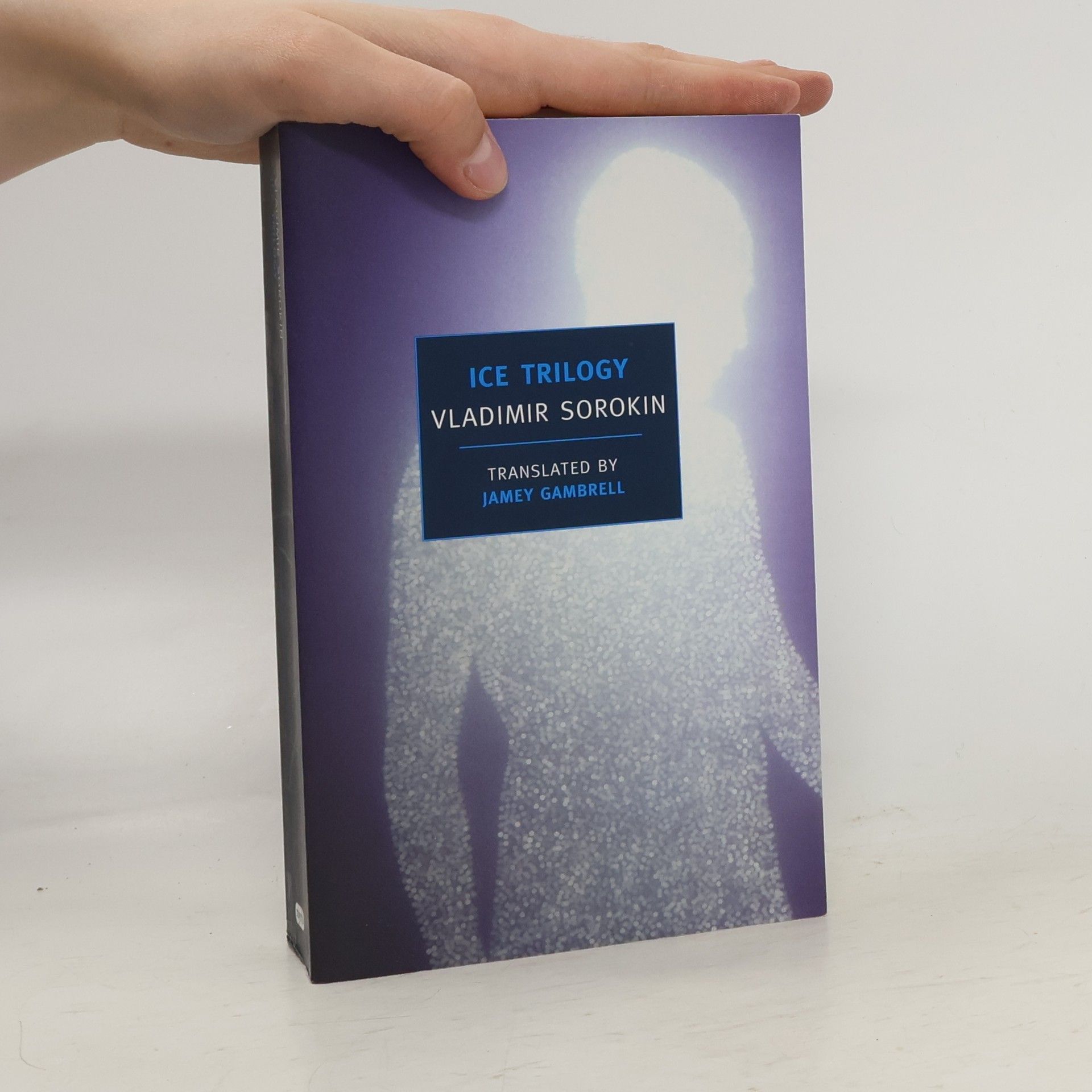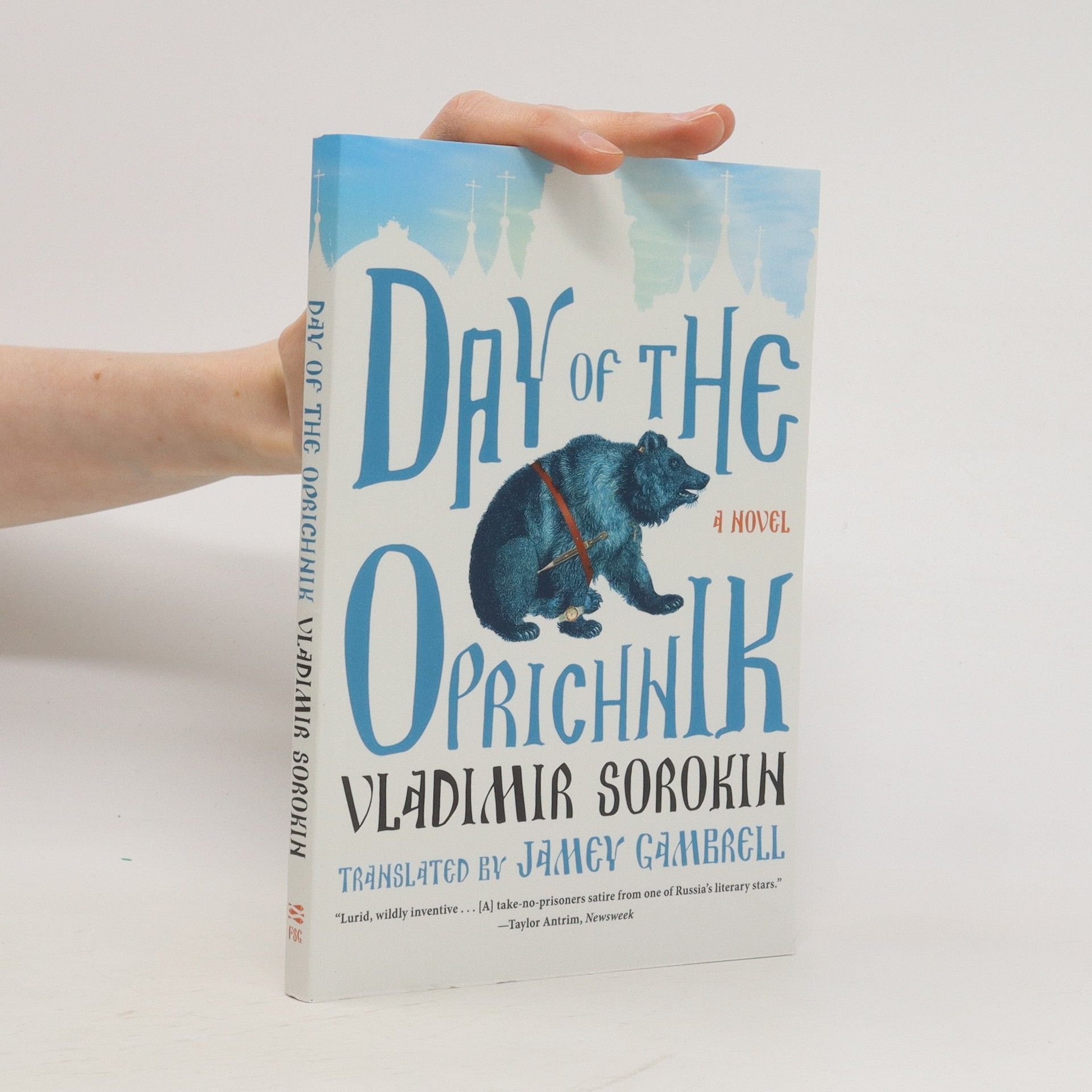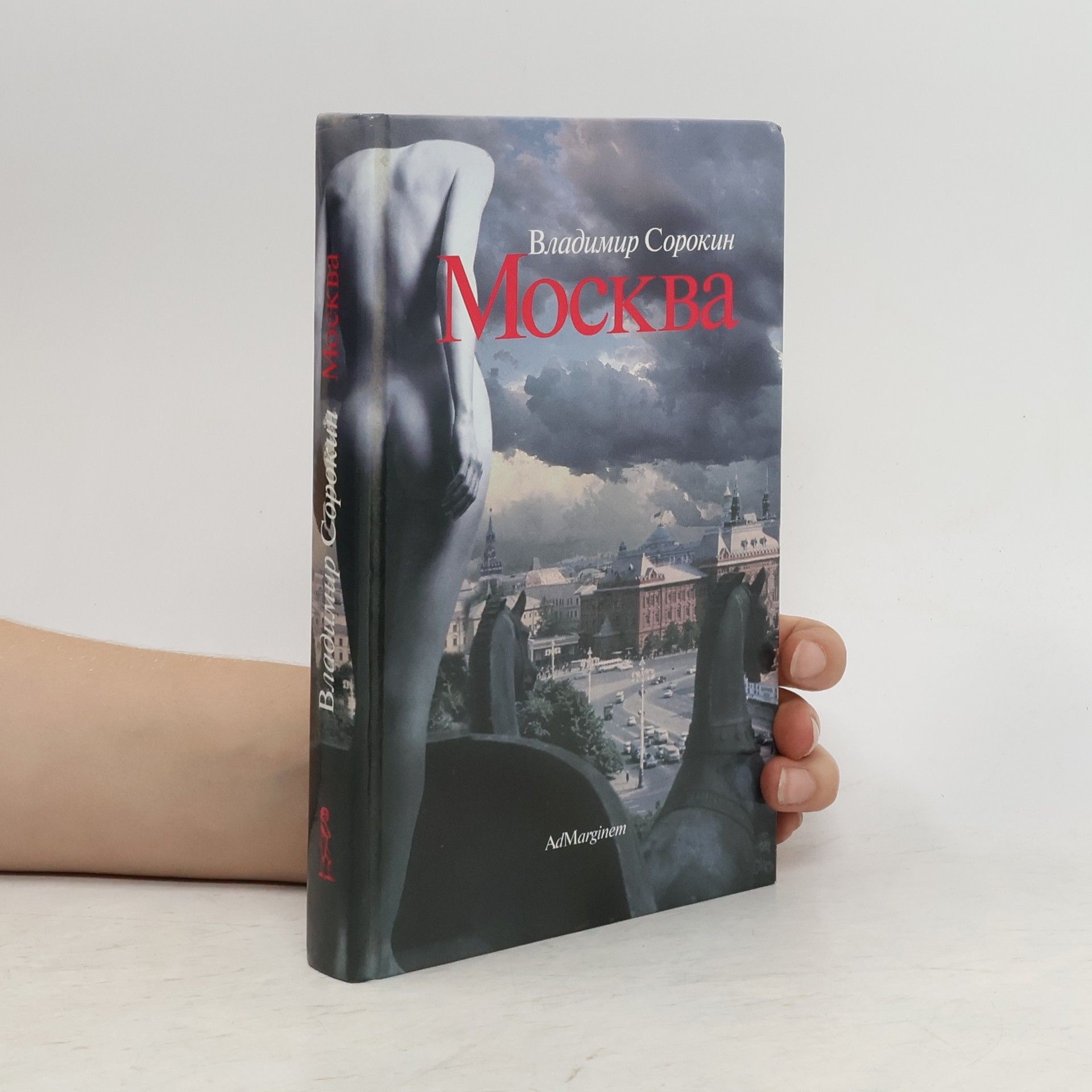Vladimir Georgijevič Sorokin Libros
Vladimir Sorokin es un importante autor ruso contemporáneo, reconocido como una figura central de la escena underground de Moscú en los años 80. Su obra, a menudo provocadora y prohibida en la Unión Soviética, explora temas de identidad, poder y tabúes sociales a través de un lenguaje innovador y formas literarias posclásicas. Sorokin no teme desafiar las normas establecidas, y su enfoque literario a menudo difumina las líneas entre géneros, abarcando novelas, obras de teatro y guiones. Su escritura ofrece una perspectiva distintiva sobre la sociedad rusa y su historia, manteniendo una voz autoral poderosa y única.







Extended comic turns like The Queue and relentless, mind-bending, genre-shredding extravaganzas like Ice Trilogy have established Vladimir Sorokin as a master of the contemporary novel. It is to Sorokin’s short fiction, however, that readers must turn to encounter the wildest and most unsettling of his inventions and provocations. Sorokin is a virtuoso of parody and pastiche, as well as a poet of the black sites where the human soul stands exposed to its own incontinent desires, and Red Pyramid spans the whole of his career, from his emergence in the Soviet Union as a member of Moscow’s artistic underground to his late preeminence as an observer and interpreter of the Putin era, with its squalid parade of gruesome folly and unhinged violence. Included here are queasy tour-de-forces, like the early “Obelisk,” a story as scatological as it is conceptual; the notorious “A Month in Dachau,” which earned Sorokin his sobriquet as the Russian Sade; and profoundly unsettling texts like “Tiny Tim,” where tenderness is inseparable from horror. Sorokin’s stories have appeared in The New Yorker, n+1, Harper’s Magazine, and The Baffler. This is the first time they have been collected in English.
Ice
- 321 páginas
- 12 horas de lectura
Ice is at the center of Vladimir Sorokin's epic Ice Trilogy, which is also published by NYRB Classics.Moscow has been hit by a wave of brutal murders. The victims are of both sexes, from different backgrounds, and of all ages, but invariably blond and blue-eyed. They are found with their breastbones smashed in, their hearts crushed. There is no sign of any motive. Drugs, sex, and violence are the currency of daily life in Moscow. Criminal gangs and unscrupulous financial operators run the show. But in the midst of so much squalor one mysterious group is pursuing a long-meditated plan. Blond and blue-eyed, with a strange shared attraction to a chunk of interstellar ice, they are looking for their brothers and sisters, precisely 23,000 of them. Lost among the common herd of humanity, they must be awakened and set free. How? With a crude hammer fashioned out of the cosmic ice. Humans, meat machines, die under its blows. The hearts of the chosen answer by uttering their true names. For the first time they know the ecstasy of true life. For the awakened, the future, like the past, is simple. It is ice.
Their Four Hearts
- 204 páginas
- 8 horas de lectura
The novel that reportedly caused a walkout upon publication, this grotesque, absurdist work by Russia's de Sade follows four individuals set upon a common goal of destruction and violence.
"Telluria is set in the future, when a devastating holy war between Europe and Islam has succeeded in returning the world to the torpor and disorganization of the Middle Ages. Europe, China, and Russia have all broken up. The people of the world now live in an array of little nations like puzzle pieces, each cultivating its own ideology or identity, a neo-feudal world of fads and feuds, in which no one power dominates. What does, however, travel everywhere is the appetite for the special substance tellurium. A spike of tellurium, driven into the brain by an expert hand, offers a transforming experience of bliss; incorrectly administered, it means death. The fifty chapters of Telluria map out this brave new world from fifty different angles, as Sorokin, always a virtuoso of the word, introduces us, among many other figures, to partisans and princes, peasants and party leaders, a new Knights Templar, a harem of phalluses, and a dog-headed poet and philosopher who feasts on carrion from the battlefield. The book is a immense and sumptuous tapestry of the word, carnivalesuqe and cruel, and Max Lawton, Sorokin's gifted translator, has captured it in an English that carries the charge of Cormac McCarthy and William Gibson"-- Provided by publisher
A New York Review Books Original In 1908, deep in Siberia, it fell to earth. THEIR ICE. A young man on a scientific expedition found it. It spoke to his heart, and his heart named him Bro. Bro felt the Ice. Bro knew its purpose. To bring together the 23,000 blond, blue-eyed Brothers and Sisters of the Light who were scattered on earth. To wake their sleeping hearts. To return to the Light. To destroy this world. And secretly, throughout the twentieth century and up to our own day, the Children of the Light have pursued their beloved goal. Pulp fiction, science fiction, New Ageism, pornography, video-game mayhem, old-time Communist propaganda, and rampant commercial hype all collide, splinter, and splatter in Vladimir Sorokin’s virtuosic Ice Trilogy, a crazed joyride through modern times with the promise of a truly spectacular crash at the end. And the reader, as eager for the redemptive fix of a good story as the Children are for the Primordial Light, has no choice except to go along, caught up in a brilliant illusion from which only illusion escapes intact.
The Blizzard
- 181 páginas
- 7 horas de lectura
"In this short, surreal twist on the classic Russian novel, a doctor travels to a distant village to save its citizens from an epidemic, but a metaphysical snowstorm gets in his way"--
Day of the Oprichnik
- 208 páginas
- 8 horas de lectura
One of The Telegraph's Best Fiction Books 2011 Moscow, 2028. A scream, a moan, and a death rattle slowly pull Andrei Danilovich Komiaga out of his drunken stupor. But wait--that's just his ring tone. So begins another day in the life of an oprichnik, one of the czar's most trusted courtiers--and one of the country's most feared men. In this new New Russia, where futuristic technology and the draconian codes of Ivan the Terrible are in perfect synergy, Komiaga will attend extravagant parties, partake in brutal executions, and consume an arsenal of drugs. He will rape and pillage, and he will be moved to tears by the sweetly sung songs of his homeland. Vladimir Sorokin has imagined a near future both too disturbing to contemplate and too realistic to dismiss. But like all of his best work, Sorokin's new novel explodes with invention and dark humor. A startling, relentless portrait of a troubled and troubling empire, Day of the Oprichnik is at once a richly imagined vision of the future and a razor-sharp diagnosis of a country in crisis.
Dispatches from the District Committee
- 180 páginas
- 7 horas de lectura
Exploring the absurdities of Soviet life, this collection presents a subversive and darkly humorous critique of political and cultural oppression. Celebrated for its literary irreverence, the stories reveal a grotesque yet genius portrayal of reality beyond state propaganda. Originally part of Sorokin's 1992 collection, these tales resonate with contemporary themes, making them increasingly relevant in today's post-truth era. Translated by Max Lawton, the work showcases the author's acclaimed political satire and incisive commentary.
knigu voshli povesti Eros Moskvy, Tridtsataya lyubov' Mariny V knigu voshli povesti Eros Moskvy, Tridtsataya lyubov' Mariny i kinostsenariy Moskva.i kinostsenariy Moskva. schovat popis


